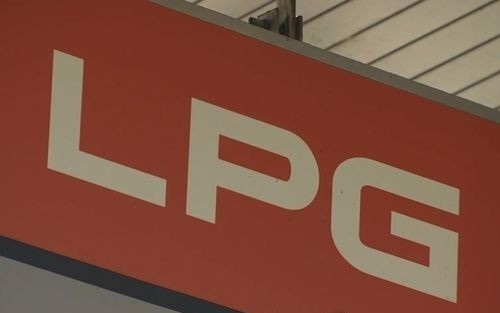The number of liquefied petroleum gas vehicles registered in South Korea dropped by 90,000 last year mainly due to price hikes for fuel and the lack of new models made by local carmakers, industry data showed Sunday.
According to the auto industry and transport ministry, there were 2.18 million LPG powered vehicles in the country as of late 2016, down 90,547 from the previous year. The number of cars that run on the relatively "clean" fuel source made up 10 percent of all vehicles in the country.

Cars that burn LPG release very little fine exhaust particles that have been cited as one contributing factor to the bad air condition in big cities like Seoul.
LPG car numbers had risen up till 2010, but started backtracking from 2011 onwards, as the government marked up the price of the gas.
Popularity of diesel cars with excellent fuel economy and general unwillingness by automakers to configure their vehicles to burn LPG has contributed to the decline, market watchers said.
Another factor that has contributed to the declining number of LPG cars is administrative restrictions.
Under South Korean law only taxis, rentals and cars driven by people with physical disabilities can run on LPG vehicle. The country also restricts what kind of car can burn the gas, further limiting options for those that want to buy such vehicles. LPG can only be used on hybrids, small city cars and recreational vehicles that can seat more than seven people.
Car industry experts said that restrictions set by authorities are not based on clear cut reasons and actually go against trends in countries such as Italy, Poland and Turkey where there has been a rise in LPG cars.
"LPG cars release almost no particulate matter and just a fraction of nitrogen oxide compared to diesel engines," insiders said. They added that with more shale gas production there is more supply of the fuel that is helping to stabilize and lower prices.
Reflecting such criticism the government is reviewing its overall policy stance in regards to the LPG vehicles, with independent automotive watchers carefully speculating that a policy course change could take place down the line. (Yonhap)




![[Herald Interview] 'Amid aging population, Korea to invite more young professionals from overseas'](http://res.heraldm.com/phpwas/restmb_idxmake.php?idx=644&simg=/content/image/2024/04/24/20240424050844_0.jpg&u=20240424200058)












![[KH Explains] Korean shipbuilding stocks rally: Real growth or bubble?](http://res.heraldm.com/phpwas/restmb_idxmake.php?idx=652&simg=/content/image/2024/04/25/20240425050656_0.jpg&u=)

